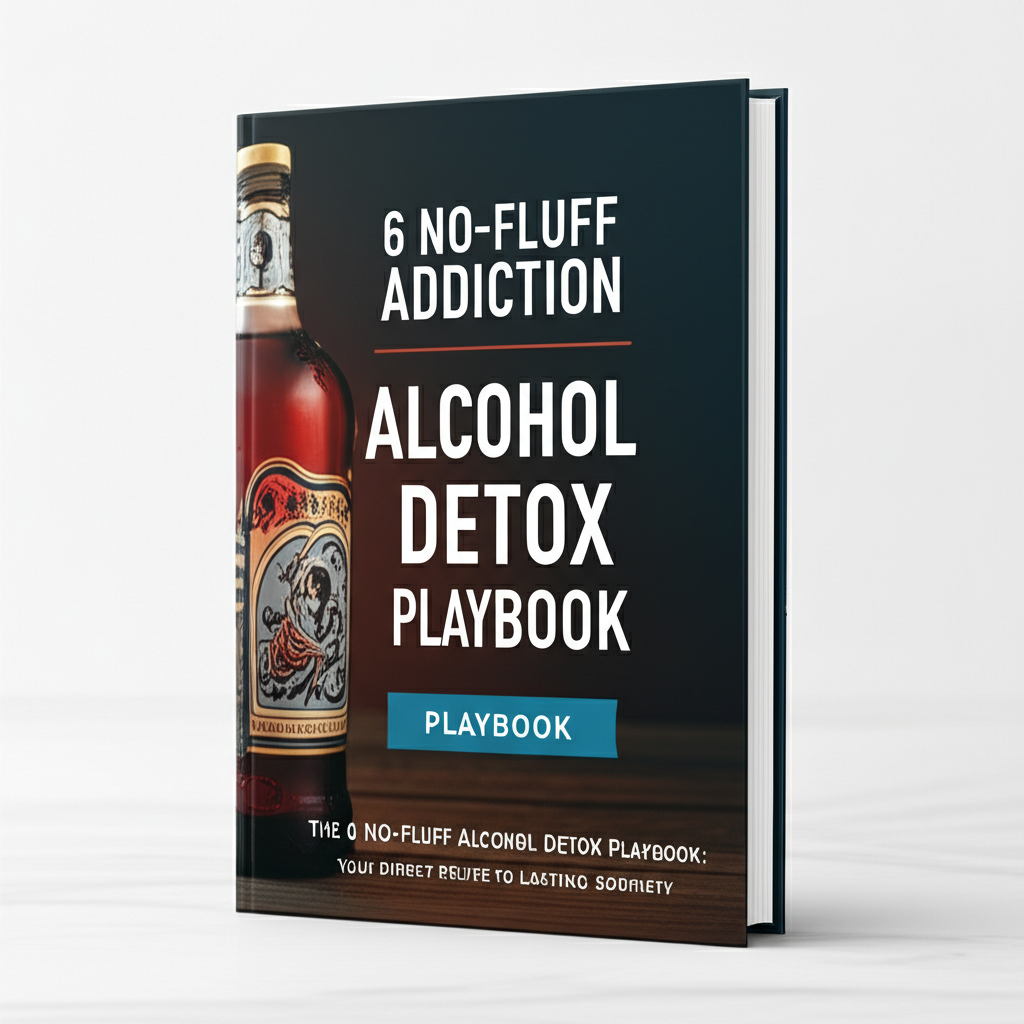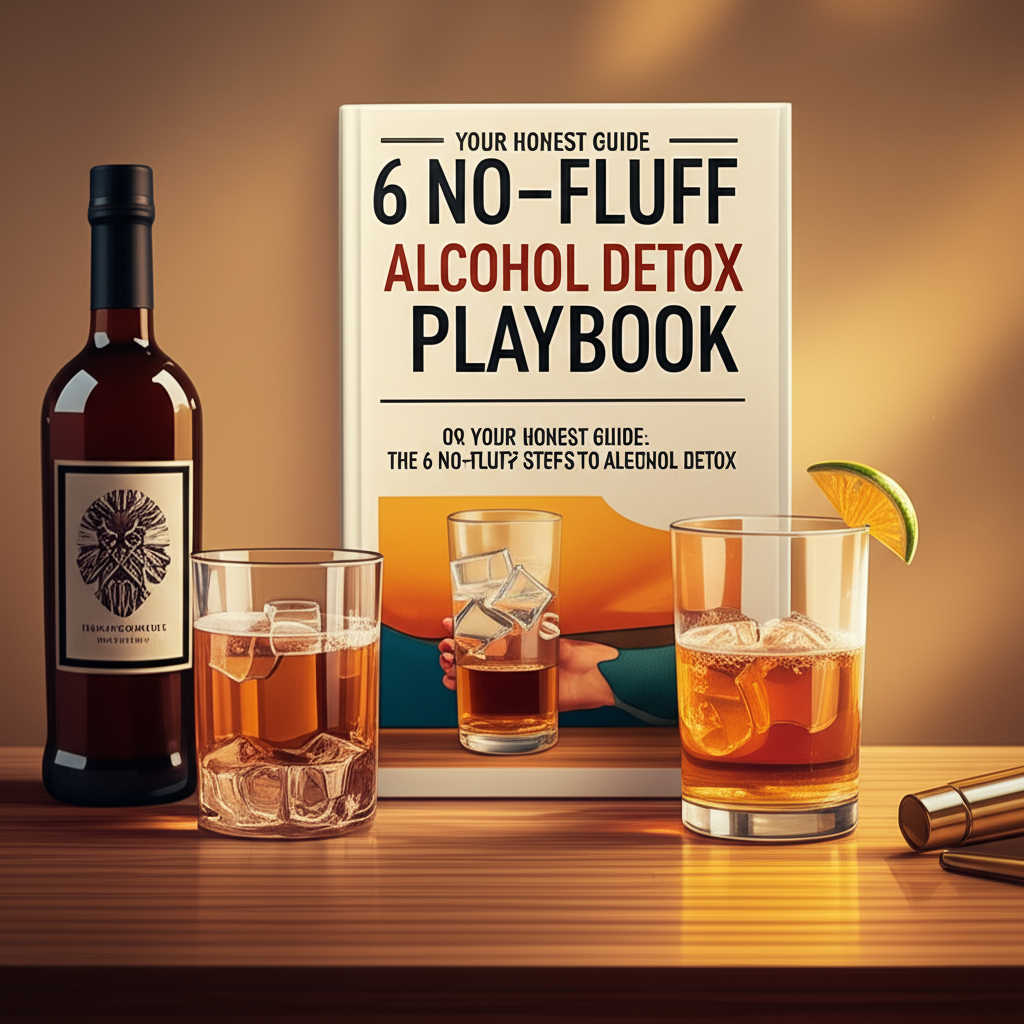The decision to stop drinking is monumental – a courageous first step towards reclaiming your life. For many, the idea of alcohol detox can be daunting, shrouded in uncertainty and fear. You might have heard conflicting advice, or perhaps you’re simply overwhelmed by the sheer volume of information out there. What’s fact, what’s fiction, and what truly matters when you’re preparing for such a significant change?
This article cuts through the noise. We’ve distilled the complex process of alcohol detox into a practical, "no-fluff" 5-point checklist designed to give you clarity, direction, and above all, a safer path forward. This isn’t about quick fixes or unsupported promises; it’s about equipping you with the essential knowledge to make informed decisions and prioritize your well-being. Whether you’re considering detox for yourself or supporting a loved one, understanding these crucial steps is the bedrock of a successful and sustainable journey to sobriety.
1. Assess Your Needs & Get Professional Guidance: The Non-Negotiable First Step
Attempting alcohol detox without professional medical supervision can be extremely dangerous, even life-threatening. Alcohol withdrawal syndrome (AWS) is a serious medical condition, and its symptoms can range from uncomfortable to critical. This isn’t a step you should ever take lightly or try to manage entirely on your own.
Understanding Alcohol Withdrawal Syndrome (AWS)
When someone drinks heavily and consistently, their brain adapts to the presence of alcohol, creating a new "normal." When alcohol is suddenly removed, the brain goes into overdrive, leading to a cascade of physical and psychological symptoms. These can appear within hours of the last drink and intensify over the next few days.
Common symptoms of AWS include:
- Mild to Moderate:
- Tremors (shaking hands)
- Anxiety and agitation
- Headaches
- Nausea and vomiting
- Insomnia
- Heavy sweating
- Increased heart rate and blood pressure
- Severe (requiring immediate medical attention):
- Hallucinations (seeing, hearing, or feeling things that aren’t there)
- Seizures
- Delirium Tremens (DTs): A severe form of withdrawal characterized by confusion, disorientation, rapid heart rate, high blood pressure, fever, and extreme agitation. DTs can be fatal without medical intervention.
Why Professional Medical Assessment is Non-Negotiable
A qualified medical professional can accurately assess your level of alcohol dependence, your overall health, and the potential severity of your withdrawal symptoms. They can then recommend the safest and most effective detox plan for you. This assessment is crucial for:
- Risk Evaluation: Determining your risk for severe withdrawal symptoms like seizures or DTs.
- Medication Management: Prescribing medications (e.g., benzodiazepines) that can significantly reduce the severity of withdrawal symptoms, prevent seizures, and make the process more comfortable and safer.
- Managing Co-occurring Conditions: Addressing any other physical or mental health issues that could complicate detox.
Types of Detox Settings
Based on your assessment, a medical professional will recommend the most appropriate detox environment:
- Outpatient Detox: Suitable for individuals with mild to moderate dependence, good physical health, a strong support system at home, and no history of severe withdrawal. You attend regular appointments for medication and monitoring but return home each day.
- Inpatient/Residential Detox: Recommended for those with moderate to severe dependence, a history of severe withdrawal, co-occurring mental or physical health conditions, or an unstable home environment. You stay at a facility 24/7, receiving constant medical supervision, medication management, and support.
Your Action Step: Immediately consult a doctor, an addiction specialist, or an addiction treatment center. Be honest about your drinking habits and medical history. This is the single most important step.
2. Prepare Your Environment & Support System: Laying the Groundwork for Success
Once you have a medical plan in place, preparing your physical and social environment is critical. This creates a safe, supportive bubble around you, minimizing triggers and maximizing your chances of successful detox and continued sobriety.
Creating a Safe Space
Your detox environment should be calm, comfortable, and free from any alcohol or related paraphernalia.
- Remove All Alcohol: This seems obvious, but it’s often overlooked. Thoroughly clear your home of all alcoholic beverages, including forgotten bottles in cupboards, the back of the fridge, or even cooking wines.
- Minimize Triggers: Identify places, people, or activities that typically prompt you to drink and make a plan to avoid them during detox. This might mean temporarily staying away from certain friends, bars, or even specific routes home.
- Comfort and Convenience: Ensure your space is comfortable. Have plenty of clean bedding, comfortable clothes, and easy access to a bathroom. You’ll likely experience discomfort, so making your surroundings as soothing as possible is beneficial.
- Entertainment and Distraction: Gather books, movies, music, puzzles, or craft supplies – anything that can help distract you from cravings or discomfort.
Enlisting Your Support Network
You don’t have to go through this alone. A strong support system is invaluable.
- Inform Trusted Individuals: Tell close friends or family members about your decision to detox and your plan. Explain what you might experience and how they can best support you (e.g., checking in, running errands, providing companionship).
- Set Boundaries: Clearly communicate what you need and what you don’t. This might include asking them not to drink around you or to avoid certain topics.
- Professional Support: Your medical team is your primary support during detox. Beyond that, consider connecting with a therapist or a peer support group (like Alcoholics Anonymous or SMART Recovery) even before detox begins. They can offer encouragement and practical advice.
Your Action Step: Declutter your home of alcohol, identify and plan to avoid triggers, and communicate openly with your chosen support system.
3. Hydration, Nutrition & Symptom Management: Nurturing Your Body
During detox, your body is working incredibly hard to rid itself of toxins and rebalance. Proper hydration and nutrition are essential for supporting this process and mitigating some of the physical discomforts.
The Power of Proper Hydration
Alcohol is a diuretic, meaning it dehydrates your body. Replenishing fluids is crucial.
- Water is Key: Drink plenty of water throughout the day. Aim for small, frequent sips rather than large gulps.
- Electrolyte-Rich Beverages: Consider sports drinks (without excessive sugar), coconut water, or clear broths to replenish electrolytes lost due to dehydration, sweating, and vomiting.
- Avoid Caffeinated or Sugary Drinks: These can further dehydrate you or exacerbate anxiety and jitters.
Nourishing Your Body
You might have a poor appetite or nausea during detox, but eating nutritious food is vital.
- Easy-to-Digest Foods: Focus on bland, easy-to-digest foods like toast, rice, plain chicken broth, bananas, and applesauce.
- Small, Frequent Meals: Instead of large meals, try to eat smaller portions more often to keep your blood sugar stable and reduce nausea.
- Nutrient-Dense Options: As your appetite returns, incorporate lean proteins, whole grains, fruits, and vegetables to help your body recover and repair.
- Vitamins and Supplements: Your doctor may recommend specific vitamin supplements, especially B vitamins (like thiamine), which are often depleted in individuals with alcohol dependence and are crucial for brain function. Do not self-prescribe supplements.
Managing Discomfort (with Medical Oversight)
While medical professionals will manage severe symptoms, you can support your comfort within their guidelines.
- Rest: Allow your body ample time to rest and recover. Sleep can be difficult during withdrawal, but prioritize quiet time.
- Gentle Activity: If permitted by your doctor, light activities like short walks can sometimes help with restlessness and improve mood, but avoid strenuous exercise.
- Comfort Measures: Use cool compresses for fever or headaches, take warm baths (if safe), and wear loose, comfortable clothing.
- Medication Adherence: Strictly follow your doctor’s instructions for any prescribed medications to manage withdrawal symptoms. Do not alter dosages or stop taking them without consulting your doctor.
Your Action Step: Prioritize water and electrolyte intake, eat small and bland meals, and follow all medical advice for symptom management.
4. Develop a Post-Detox Recovery Plan: Building for Long-Term Sobriety
Detox is just the first step. True recovery begins after the alcohol is out of your system. Without a robust post-detox plan, the risk of relapse is extremely high. This plan is your bridge from physical sobriety to sustainable, long-term well-being.
The Bridge to Long-Term Sobriety
Think of detox as clearing the path, and the recovery plan as building the road. Your plan should address the underlying reasons for your drinking, develop coping mechanisms, and provide ongoing support.
Therapy and Counseling
Addressing the psychological aspects of addiction is crucial.
- Individual Therapy: A therapist can help you explore the root causes of your alcohol use, identify triggers, develop coping strategies, and work through any co-occurring mental health issues (like anxiety or depression). Cognitive Behavioral Therapy (CBT) and Dialectical Behavior Therapy (DBT) are common and effective approaches.
- Group Therapy: Offers a safe space to share experiences, learn from others, and build a sense of community. It can reduce feelings of isolation and provide diverse perspectives on recovery challenges.
Support Groups
Connecting with peers who understand your struggle is incredibly powerful.
- Alcoholics Anonymous (AA): A widely recognized 12-step program that provides peer support and a spiritual framework for recovery.
- SMART Recovery: An alternative program that focuses on self-empowerment and uses science-based tools and techniques to manage cravings and change behaviors.
- Other Peer Support: Explore local or online groups that align with your personal beliefs and needs.
Holistic Approaches
Consider incorporating practices that support overall well-being.
- Mindfulness and Meditation: Can help manage stress, improve focus, and develop a greater awareness of thoughts and feelings without judgment.
- Exercise: Regular physical activity is a powerful mood booster, stress reliever, and can improve sleep.
- Hobbies and Interests: Reconnecting with old passions or discovering new ones provides purpose, enjoyment, and healthy ways to spend your time.
Your Action Step: Before or during detox, work with your medical team or a therapist to create a personalized, comprehensive recovery plan that includes therapy, support groups, and healthy lifestyle practices.
5. Cultivate Mental Resilience & Self-Compassion: The Inner Work of Lasting Change
Recovery is not just about abstaining from alcohol; it’s about transforming your relationship with yourself and the world. This requires developing mental resilience to navigate challenges and practicing self-compassion, especially during moments of struggle.
Addressing the Mental Game
The psychological cravings and emotional rollercoasters can be as challenging as the physical withdrawal. Building mental strength is key.
- Identify Triggers: Beyond external cues, understand the internal emotional states (stress, boredom, loneliness, anger) that lead you to drink.
- Develop Coping Strategies: Replace old drinking habits with new, healthy coping mechanisms. This could be calling a sponsor, going for a walk, practicing deep breathing, or engaging in a hobby.
- Challenge Negative Thoughts: Addiction often comes with a barrage of negative self-talk. Learn to identify and challenge these thoughts, replacing them with more realistic and positive affirmations.
Mindfulness and Stress Reduction
These practices can be powerful tools in managing the emotional turbulence of early recovery.
- Mindful Breathing: Simple exercises can ground you in the present moment and reduce anxiety.
- Body Scan Meditation: Helps you become aware of physical sensations without judgment, which can be useful for managing discomfort or cravings.
- Yoga or Tai Chi: Combines physical movement with mindful breathing, promoting relaxation and body awareness.
Practicing Self-Compassion
This is perhaps the most overlooked yet vital aspect of long-term recovery. You will make mistakes, and you will have tough days. How you respond to these moments makes all the difference.
- Treat Yourself Like a Friend: Instead of harsh self-criticism, ask yourself: "What would I say to a dear friend going through this?" Offer yourself the same kindness and understanding.
- Acknowledge Your Effort: Recognize the immense courage it takes to embark on this journey. Celebrate small victories and acknowledge your commitment to change.
- Accept Imperfection: Recovery is rarely a straight line. There will be setbacks. View them as learning opportunities, not failures.
Journaling and Reflection
Regularly writing down your thoughts, feelings, and experiences can be incredibly therapeutic.
- Track Progress: Document your journey, noting successes, challenges, and insights gained.
- Process Emotions: Use journaling as an outlet for difficult emotions, helping you understand them better.
- Identify Patterns: Reflect on what triggers cravings or difficult moments, and what strategies helped you overcome them.
Your Action Step: Incorporate daily practices that build mental resilience and foster self-compassion, such as mindfulness, positive self-talk, and journaling.
Conclusion: Your Journey to a Brighter Future
Embarking on an alcohol detox is a profound act of self-care and courage. This 5-point "no-fluff" checklist is designed to strip away the confusion and provide you with a clear, actionable roadmap for a safer and more effective start to your recovery journey.
Remember these key insights:
- Professional Guidance is Paramount: Never attempt detox alone. Medical supervision is essential for safety and comfort.
- Preparation is Power: Create a safe, alcohol-free environment and build a strong support network.
- Nourish Your Body: Prioritize hydration and nutrition to aid physical recovery.
- Plan for the Long Haul: Detox is just the beginning; a comprehensive recovery plan is crucial for lasting sobriety.
- Cultivate Inner Strength: Develop mental resilience and self-compassion to navigate the emotional landscape of recovery.
This journey is challenging, but it is also profoundly rewarding. By taking these steps, you’re not just quitting drinking; you’re actively building a foundation for a healthier, happier, and more fulfilling life. You are capable of this change. Take that brave first step, reach out for help, and embark on your path to lasting sobriety.








